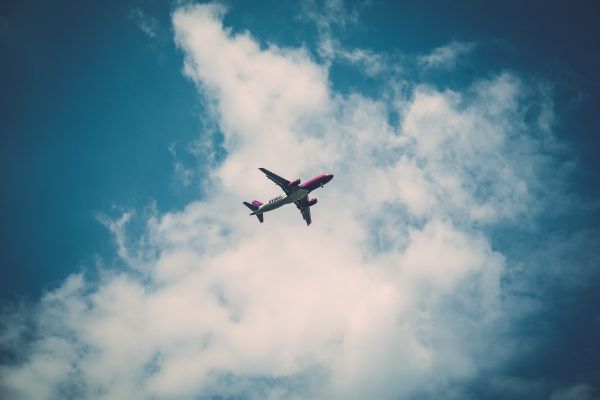Canada, renowned for its stunning landscapes, diverse culture, and welcoming atmosphere, has become a top destination for travelers worldwide. From the vibrant urban life of cities like Toronto and Vancouver to the serene natural beauty of the Rocky Mountains and Niagara Falls, Canada offers something for every kind of traveler. Whether you’re planning to visit for leisure, study, work, or even considering permanent residency, understanding the travel process to Canada is crucial. This comprehensive guide will walk you through the steps, requirements, and tips on how to travel to Canada, ensuring a smooth and enjoyable experience.
Types of Canadian Visas
Before embarking on your journey to Canada, it’s important to determine which type of visa suits your purpose of travel. Canada offers various types of visas based on the intent of the visit:
Visitor Visa
A Visitor Visa, also known as a Temporary Resident Visa (TRV), is required for tourists and short-term visitors. This visa allows you to stay in Canada for up to six months. To apply, you need a valid passport, proof of financial support, and a letter of invitation from someone in Canada if applicable.
Study Permit
If you plan to study in Canada for more than six months, you’ll need a Study Permit. To apply, you must first receive an acceptance letter from a recognized Canadian educational institution. Additionally, you’ll need to provide proof of sufficient funds to cover tuition fees, living expenses, and return transportation, as well as a clean criminal record.
Work Permit
For those intending to work in Canada temporarily, a Work Permit is necessary. This permit is usually employer-specific, meaning you must have a job offer from a Canadian employer. There are also open work permits, which allow you to work for any employer in Canada.
Permanent Residency
If you’re considering making Canada your permanent home, you may apply for Permanent Residency (PR). This process involves various programs like Express Entry, Provincial Nominee Programs (PNPs), and Family Sponsorship, each with specific requirements and criteria.
Preparing for Your Trip
Proper preparation is key to a successful trip to Canada. Here are essential steps to take before your departure:
Research and Plan Your Itinerary
Canada is vast, and its attractions are spread out across the country. Research the places you want to visit and create an itinerary. Whether you’re exploring the cultural hubs of Montreal and Quebec City, the natural wonders of Banff National Park, or the historic sites in Ottawa, having a plan will make your trip more enjoyable.
Budgeting and Financial Preparation
Traveling to Canada can be expensive, so it’s crucial to budget accordingly. Consider the cost of flights, accommodation, transportation, food, and activities. It’s also wise to have a contingency fund for unexpected expenses. Ensure you have access to your funds while in Canada by notifying your bank of your travel plans.
Health and Travel Insurance
Healthcare in Canada can be costly for non-residents, making travel insurance a necessity. Choose a comprehensive travel insurance plan that covers medical expenses, trip cancellations, and lost luggage. Additionally, ensure you are up-to-date with routine vaccinations and carry any necessary medications.
Travel Documents and Requirements
To enter Canada, you must meet specific documentation and entry requirements:
Valid Passport
Ensure your passport is valid for the duration of your stay in Canada. Some travelers may require a visa, while others may need an Electronic Travel Authorization (eTA).
Visa or eTA
Check if you need a visa or an eTA based on your nationality. Visa-exempt travelers need an eTA, which can be applied for online. The eTA is electronically linked to your passport and is valid for up to five years or until your passport expires.
Letter of Invitation
If you’re visiting family or friends, a letter of invitation from your host in Canada can strengthen your visa application. This letter should include information about your relationship with the host, the purpose of your visit, and the duration of your stay.
Arrival in Canada
Upon arrival in Canada, you will go through several procedures before you can start your adventure:
Customs and Immigration
At the airport, you’ll pass through customs and immigration. Be prepared to present your passport, visa or eTA, and any supporting documents. Answer all questions truthfully and provide any additional information requested by the immigration officer.
Declaration Card
You will be required to fill out a declaration card, disclosing any items you are bringing into the country. This includes currency over CAD 10,000, food, plants, animals, and any commercial goods. Failure to declare items can result in fines or penalties.
Exploring Canada
Once you’ve successfully entered Canada, it’s time to explore! Here are some top destinations and activities to consider:
Toronto
Toronto, Canada’s largest city, is a vibrant metropolis known for its cultural diversity and iconic landmarks like the CN Tower, Royal Ontario Museum, and Toronto Islands. Enjoy the bustling food scene, world-class shopping, and various festivals throughout the year.
Vancouver
Nestled between the Pacific Ocean and the Coast Mountains, Vancouver offers breathtaking natural beauty and a lively urban atmosphere. Explore Stanley Park, visit Granville Island, and take a day trip to Whistler for skiing or hiking.
Montreal
Montreal, in the province of Quebec, is renowned for its rich history, vibrant arts scene, and French-inspired culture. Stroll through Old Montreal, visit the Montreal Museum of Fine Arts, and indulge in the city’s famous cuisine.
Banff National Park
Located in the heart of the Rocky Mountains, Banff National Park is a must-visit for nature enthusiasts. Experience stunning mountain landscapes, turquoise lakes, and abundant wildlife. Activities include hiking, skiing, and soaking in the Banff Hot Springs.
Tips for a Smooth Experience
To ensure your trip to Canada is enjoyable and hassle-free, consider the following tips:
Weather and Clothing
Canada’s climate varies greatly by region and season. Check the weather forecast for your destination and pack accordingly. Layering is key, as temperatures can change rapidly. In winter, warm clothing is essential, including a good quality coat, gloves, and boots.
Transportation
Canada’s public transportation systems are reliable and efficient. In major cities, you can use buses, subways, and trains to get around. For longer distances, consider domestic flights or renting a car. Be aware of the driving conditions, especially in winter.
Respect Local Customs
Canadians are known for their politeness and respect for others. Follow local customs, such as tipping (usually 15-20% in restaurants), standing in line patiently, and respecting personal space. Learning a few basic phrases in French can also be helpful, particularly in Quebec.
Conclusion
Traveling to Canada offers a wealth of experiences, from exploring vibrant cities to immersing yourself in stunning natural landscapes. By understanding the types of visas, preparing thoroughly, meeting travel requirements, and respecting local customs, you can ensure a smooth and enjoyable trip.
Whether you’re visiting for leisure, study, work, or considering making Canada your permanent home, this guide provides a comprehensive overview to help you navigate the process. Embrace the adventure, and discover all that Canada has to offer!







